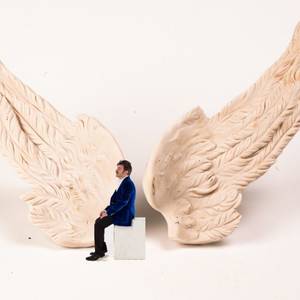The Sails of Scampia—a crime-ridden housing project in Campania's capital—will be bulldozed this summer as part of government plans to improve deprived areas on the outskirts of Italian cities.
You chose: south
-
-
Interview. He is a troubadour, singing and telling stories with a distinctly Calabrian point of view and dialect, pointing out the hypocrisy and deep political corruption in one of Italy’s most troubled regions, but balancing that with a dash of humor and catchy melodies often delivered on acoustic guitar. He will play at SubCulture New York.
-
Op-EdsFor two of their three thousand year history, the cultural bedrock and core values for the people South of Rome was the Catholic Church. Waves of conquers came and went changing governments and policies, but the Church always persevered (the Mass, Sacraments, Saints, rituals, etc.). Similarly, in American’s Little Italy urban villages, through the first half of the twentieth century, the same Church was the basis for those same core values down to the rhythm of daily life (morning Mass, mid-day Angelus, evening Rosary for Peace, etc), and the calendar was punctuated by ancient holy events (holidays, Saints Days, special masses, etc.).... In the second half of the twentieth century all that changed. The social history of the southern-Italian American people through the mid-twentieth century cannot be understood apart from the Church, and the sociology of southern-Italian Americans post 1950s must seek to understand the affects of the profound secular and Church changes in the current milieu (e.g. movement to heterogeneous suburbs, liberalism in the form of sexual and marriage mores, etc.). Most important of all, the Vatican II changes in Catholicism, which in less than one generation tore asunder the core rituals, ideology, architecture, etc. of the two thousand year ‘traditional’ Church of southern-Italian Americans, and now seems to be moving back to its traditional roots.
































